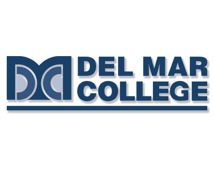Below is a summary of the abstract you submitted. Presenting author(s) is shown in bold.
If any changes need to be made, you can modify the abstract or change the authors.
You can also download a .docx version of this abstract.
If there are any problems, please email Dan at dar78@pitt.edu and he'll take care of them!
This abstract was last modified on April 20, 2015 at 6 p.m..

While self-reporting surveys of attitudinal changes and motivation of STEM students has its place in understanding the benefits of SEA-PHAGES and other course-based undergraduate research programs, we have focused on the tangible outcomes that our students experience by participation in this program. At Del Mar College, we implement the program with a section of our introductory biology for majors linked with our introductory biotech course each semester and taught in tandem. In the spring, the lab sections of the courses meet in joint session for much of the semester for annotation sessions. Students are required to present their annotation results at a regional meeting or at our annual Student Research Day. This program affords our students experiences that are not possibility in a traditional bioscience course. For example, annotation of novel phages leads to GenBank submissions. SEA-PHAGES student researchers have also published articles and abstracts, won poster/presentation awards, received offers of employment (before they graduated), been recruited into other schools, and successfully competed for and procured scholarships. In addition, these students have greater participation in campus activities (e.g., Student Research Day) and integration into the culture and profession of the scientific discipline from presenting at scientific meetings. Another benefit of the SEA-PHAGES program is that it incorporates a competency-based testing of laboratory techniques by its nature. For example, students that do not use proper aseptic technique will experience contamination and will have to repeat the experiment. The project team has observed that these students are able to grasp laboratory techniques faster and work more independently. We have also observed SEA-PHAGE students have superior skills, knowledge, and technical competencies compared to traditionally taught students. In addition, both the faculty and student assistants have noted an elevated level of student excitement and engagement compared to the traditionally taught science labs. In the long-term, the project team anticipates that our implementation of the SEA-PHAGES program will engage students and faculty in a common experiment, building a student/faculty community that has shared laboratory resources and expertise. The SEA-PHAGE research-mentoring program, therefore, is providing student outcomes that simply cannot result from traditionally taught freshman science classes.

